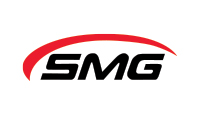We manage energy project development, environmental permitting, remediation and compliance, insustrial hygiene, health & safety, auditing, environmental management, government relations. We solve your problems in all of these areas. We move quickly and dig deeply to reach your goals. We work wherever you are.
How can SMG help you?
SMG POV
On Monday, January 13, 2014, the Government Accountability Office released a report on the National TMDL program calling for new EPA regulations and a Congressional revision of the Clean Water Act. The report specifically calls for new regulations of non-point source pollution which would impact stakeholders such as farmers and land developers. The Government Accountability Office (GAO) was asked to review EPA and state implementation of total maximum daily load (TMDL) programs in the nation’s waterways. Of the 50,000 TMDLs in effect across the country, 191 TMDLs were surveyed by GAO while a smaller group of 25 TMDLs were reviewed by “water resource experts” at GAO’s request. The GAO report indicates that state officials “reported that pollutants had been reduced in many waters, but few impaired water bodies have fully attained water quality standards.” The Clean Water Act currently gives little, if any, regulatory authority to the EPA for mandatory measures to control non-point source pollution. The GAO’s recommendation would impact a variety of landowners who do not currently fall under the point source regulatory framework and extend the EPA’s regulatory powers.
FEATURED PROJECT
PROBLEM
A local company engaged in manufacturing imported a small amount of a chemical substance defined under TSCA. Faced with a potential EPA enforcement action with penalties assessed for noncompliance under TSCA of up to $32,500 per day per violation, the company called SMG for help.
SMG'S APPROACH
SMG analyzed the company’s current TSCA procedures and assisted the company in developing a proactive, cost-effective compliance procedure. SMG also facilitated a training program to educate employees about TSCA.
MG worked with the company to develop mechanisms that assured adherence with the policies that were being implemented for compliance. Procedures to promptly correct any potential violations and prevent future violations were also put into place.
RESULTS
SMG was able to show that the company complied with the relevant TSCA regulations and was improving their TSCA policies and procedures to assure that future issues were less likely to occur. The company was not subjected to the proposed penalties and now has mechanisms in place to maintain TSCA compliance.
